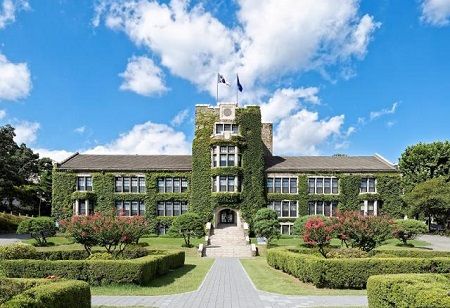Yonsei University, in partnership with IBM, has successfully launched the first IBM Quantum System One in South Korea, making it only the second such system installed on a university campus worldwide. Located at Yonsei’s Quantum Computing Center on the Songdo International Campus, the quantum system will be accessible to Yonsei University as well as other academic institutions, businesses, and organizations across South Korea that collaborate with the university.
The president of Yonsei University, Dong-Sup Yoon, explained the importance of this milestone, underlining the truth that this IBM Quantum System One is a solid basis for the highest levels of research and educational activity in quantum computing and advanced biology. He also strongly committed Yonsei to host the world's greatest quantum researchers, engage in successful collaborations with global institutions of quantum research, and produce innovative output that benefits human well-being.
The new system at Yonsei University is now a part of IBM's global network of quantum computers, joining other dedicated sites in the U.S., Canada, Germany, and Japan. Powered by IBM's 127-qubit Quantum Eagle processor, the quantum computer will provide researchers, students, and organizational partners at Yonsei exclusive access to a large-scale quantum computing resource via the cloud.
IBM quantum Eagle processor achieved the breakthrough that solves problems in chemistry, physics, and materials science that exceed classical methods. This marks the beginning of what people describe as quantum utility using quantum systems to investigate scientific problems and obtain practical benefits that are either faster, cheaper, or more accurate than classical computing methods.
Jay Gambetta, IBM Quantum VP, is thrilled about the partnership with Yonsei University, saying that "this is a unique opportunity for South Korea's research institutions, businesses, and talent to advance quantum computing algorithms and to explore scientific and business applications". According to him, the IBM Quantum System One at Yonsei will be instrumental in helping the country create additional quantum talent, as well as further develop the quantum ecosystem in the region.
Yonsei University will commemorate the opening of its Quantum Computing Complex on its Songdo campus with a ceremony in March 2025. The event marks the university's 140th anniversary and occurs during UNESCO International Year of Quantum Science and Technology.
Yonsei University is leading the development of the quantum ecosystem in South Korea. Situated in the National Advanced Strategic Industrial Complex for biotechnology in Songdo, Yonsei is collaborating with Incheon Metropolitan City to establish the world's very first quantum-bio convergence high-tech industrial cluster. In this regard, Yonsei entered into a Memorandum of Understanding (MOU) with IBM in July 2024 to launch the Bio-Quantum Initiative that will fortify the country's quantum ecosystem.
On the research side, the university has designated a Quantum Computing Project Team, including the operation center of the quantum ecosystem, the technology support center for quantum computing, and the quantum computing center, to drive forward quantum research and ecosystem building. With IBM, the university will also be able to upgrade its research infrastructure, co-develop quantum algorithms, and provide education in workshops, seminars, and conferences to stimulate talent in quantum.
Jaeho Cheong, head of Yonsei’s Quantum Computing Project Team, emphasized that the quantum computing sector is poised for significant growth, predicting a market increase of over $5.5 billion from 2023 to 2030. Cheong encouraged various organizations, including government agencies, research institutes, universities, and companies, to engage with Yonsei to explore the potential of quantum computing and collaborate on research projects.
Under this initiative, Yonsei University and IBM seek to create a collaborative quantum ecosystem that fosters 'quantum literacy' across industries and sets the foundation for cooperative research and innovation.

